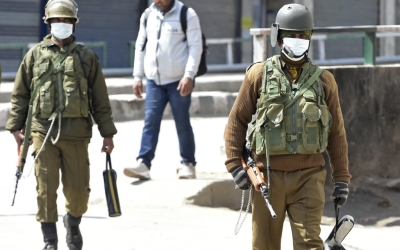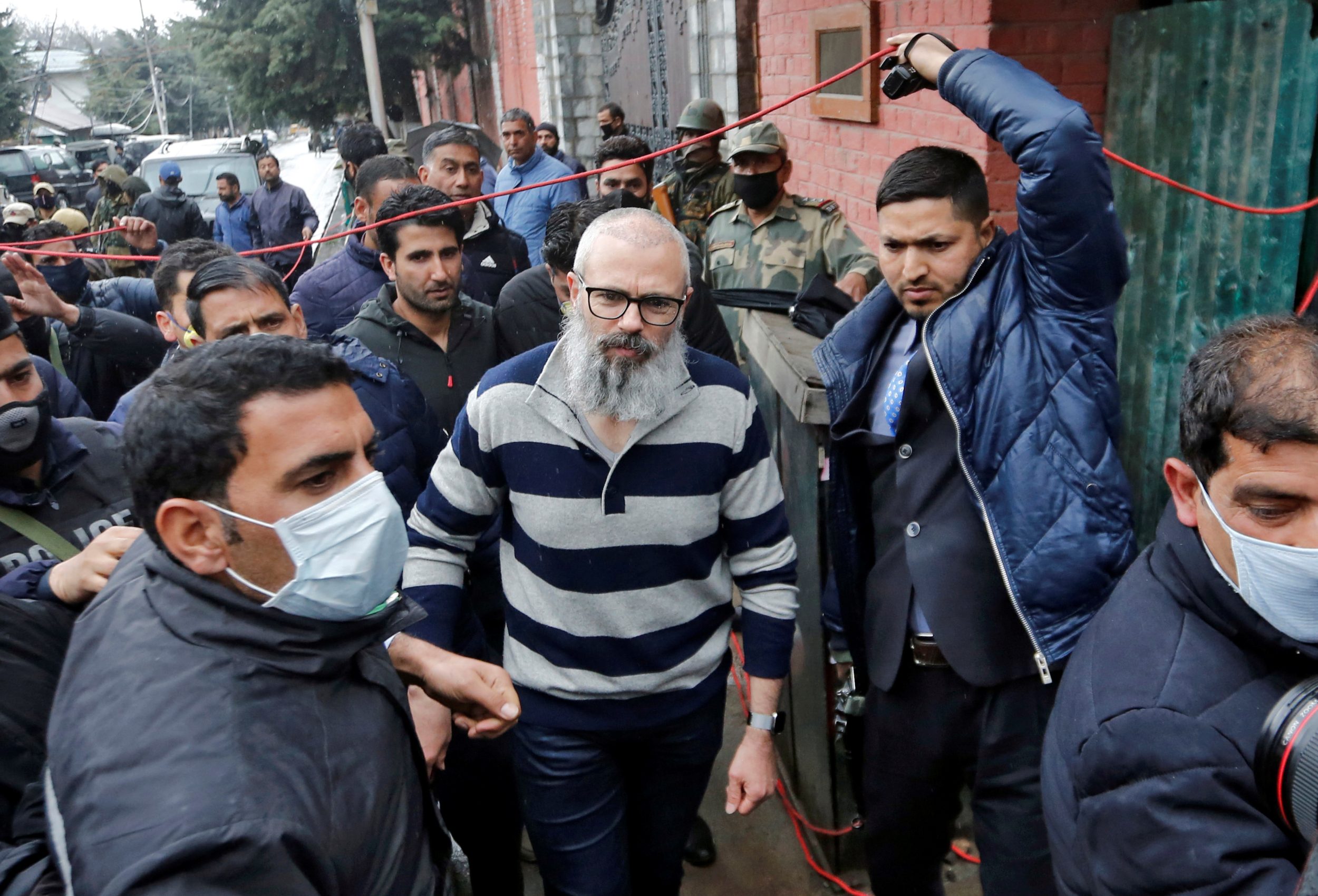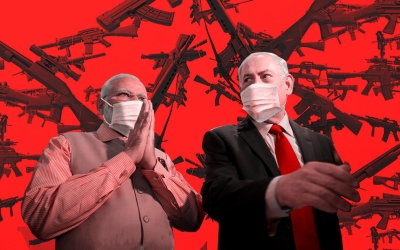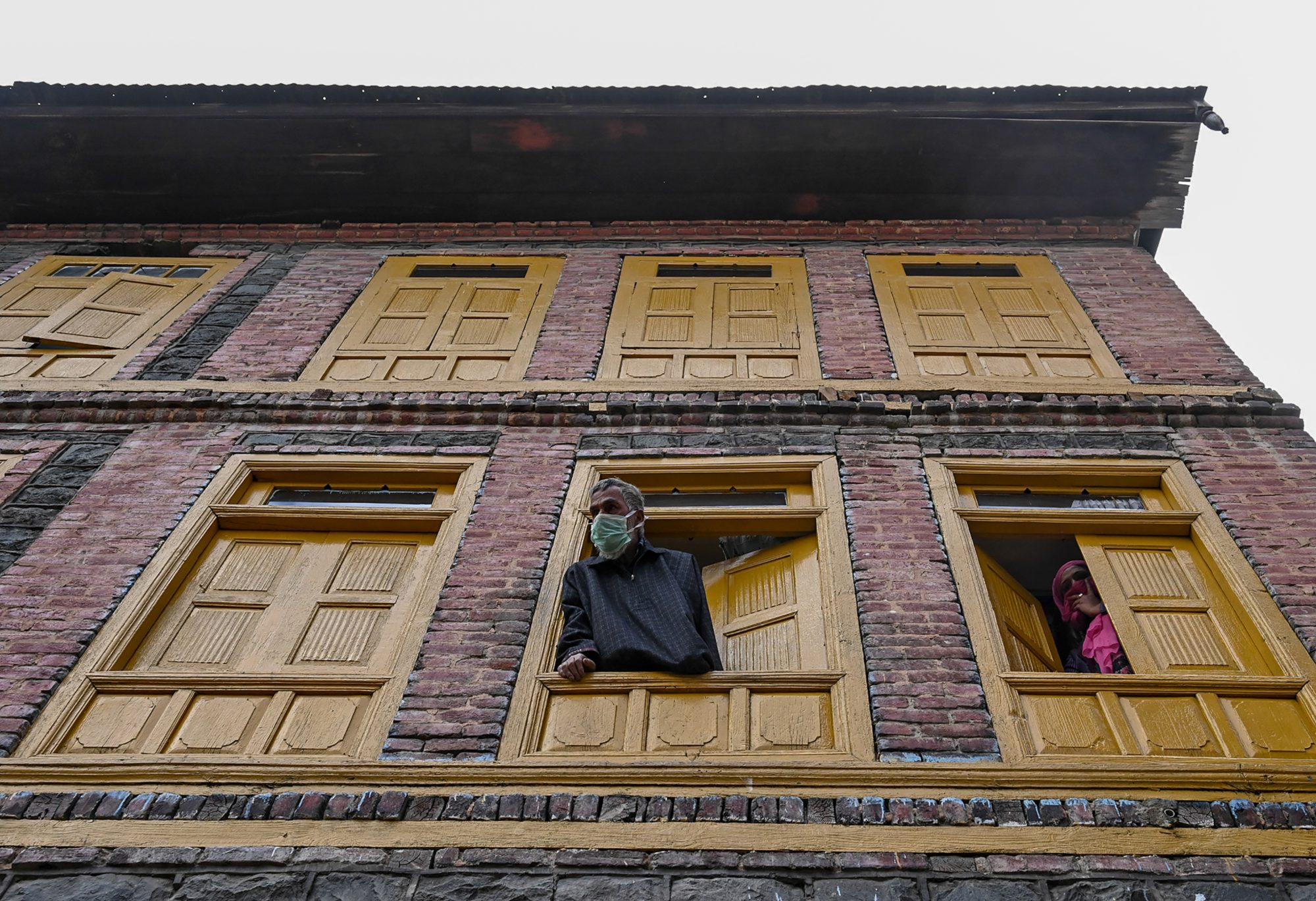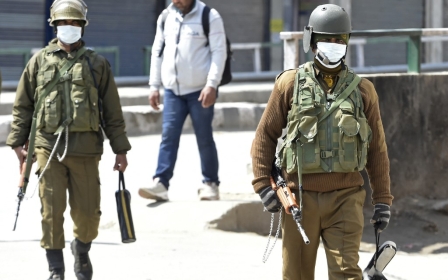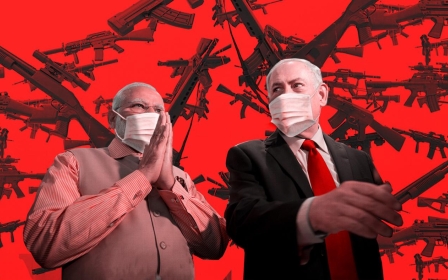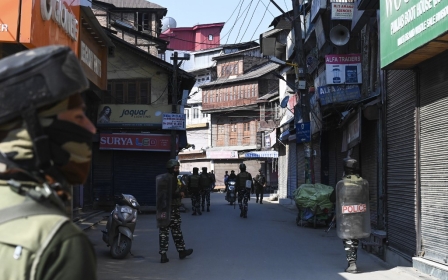Coronavirus: Kashmiris seek release of prisoners from Indian jails amid outbreak
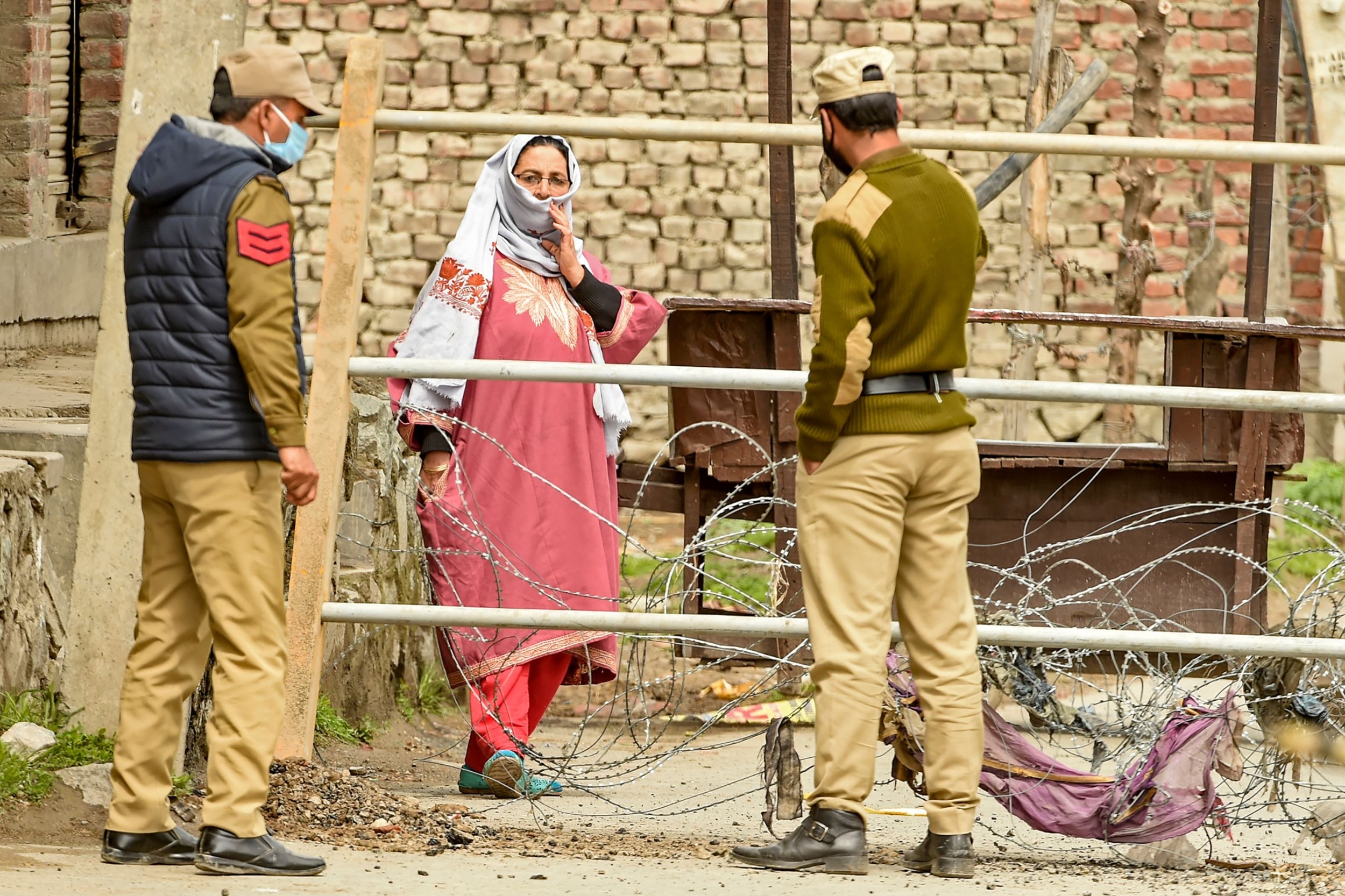
Human rights groups and relatives of prisoners from India-controlled Kashmir are calling for the release of political detainees held in Indian jails, as fears grow that they could catch coronavirus.
As of Thursday, India has recorded 5,916 cases of virus, including 178 fatalities, forcing the government led by the Hindu nationalist Bhartiya Janta Party (BJP) to scale up its efforts to contain the virus.
In late March, India’s Supreme Court recommended that the government begin granting parole to prisoners in a bid to stop the exponential spread of the coronavirus pandemic in the country’s overpopulated prisons.
The government has imposed stringent restrictions on movement across the country, and followed the Supreme Court ruling, begun releasing a number of prisoners.
But amid extraordinary measures taken during the global pandemic, hundreds of people from India-controlled Kashmir remain detained in prisons across India, eight months into a lockdown on the region.
Nuzhat Shahid has been running from pillar to post for two and a half years fighting for the release of her husband, Shahid ul Islam, and now fears coronavirus puts him in further jeopardy.
Islam was among scores of pro-independence Kashmiri leaders detained in 2017 by India's National Investigation Agency (NIA) and accused of “funding terrorism” - charges many Kashmiri activists say are used to suppress the freedom movement.
"My husband is diabetic. He lives in the most pathetic conditions one can imagine,” Nuzhat Shahid told MEE. “In the current crisis, he is among the most vulnerable to getting infected. He has lost weight and it has now gotten to a point where his eyesight is getting affected.
“He has committed no crime but is made to live like a criminal," she added.
Human rights activists have warned that very few Kashmiris have been thus far paroled and if nothing changes, the consequences could be disastrous.
Political repression
In August, India abrogated Jammu and Kashmir’s special status as a partially autonomous region, which had been in place since 1954 amid a longstanding territorial dispute with Pakistan.
Since then, the Hindu nationalist government of Prime Minister Narendra Modi has implemented a wide-ranging crackdown on the Muslim-majority Himalayan region, imposing a curfew, arresting hundreds of Kashmir residents and severely restricting internet access.
At least 7,300 people have been detained by Indian forces in a crackdown on protests since August. Official figures indicate that at least 420 Kashmiris remain imprisoned.
"Most of the Kashmiri detainees are not criminals,” Khurram Parvez, a Kashmiri activist and the chairperson of the Asian Federation Against Involuntary Disappearances, told Middle East Eye.
“They are political detainees and are being hounded purely for their political views,” he argued. “There is no reason that the concessions being granted to other detainees, including convicted criminals, are not being extended to them."
Parvez believes that amid high levels of Islamophobic political discourse, both ruling and opposition parties in India have attempted to score political points by discriminating against or inflicting violence on Kashmiris and other Muslims citizens.
"By denying Kashmiri prisoners their rights, the government scores political points,” Parvez said. “It caters to the frenzy against Kashmiris. Even the most liberal political and media groups in India have extremist views when it comes to Kashmir."
Although Indian authorities released 31 detainees from a local jail in Srinagar - the largest city in the Jammu and Kashmir region - on 30 March, hundreds continue to be held in prisons across the rest of India.
But the issue of incarceration in times of pandemic has reached such proportions that United Nations Secretary-General Antonio Guterres brought the issue to the fore on Monday.
In response to a question regarding the fate of Kashmiri prisoners, Guterres’ spokesperson Stephane Dujarric said the UN leader "believes that member states need to take a very close look at incarcerations during a time of Covid-19”.
Kashmir virus hotspot
The debate over the fate of Kashmiri prisoners comes as the region has reportedly had the highest density of coronavirus cases in India, with the region alone recording at least 159 cases of coronavirus, including four deaths, as of 9 April.
The Indian government has placed even tighter restrictions on mobility and assembly to thwart a further increase in cases - with security forces sealing off the main roads in the valley and erecting barriers and barbed wire on district highways to enforce the lockdown.
Authorities have also requested that doctors and paramedics not share information with the media about the ongoing pandemic - causing an uproar among Kashmiri citizens.
A ban on high-speed internet in the region, launched eight months ago, is also adding to the woes of the doctors and medical staff.
"Because of slow-speed internet we are not able to keep ourselves updated with the latest medical literature generated by different research forums of the world. It is a big hurdle in dealing with the crisis," Dr Suhail Naik, the head of the Doctors Association of Kashmir (DAK), said.
In mid-March, Amnesty International called on India to restore full internet access to Kashmir in order to help fight the pandemic.
"Complete shutdowns or restricting of internet speed or access makes it difficult for people to navigate their way through a difficult time further undermining their trust in the authorities,” said Avinash Kumar, the executive director of Amnesty International India.
“The government of India needs to adopt a rights-respecting approach to protect public health and restore access to 4G speed internet."
With fewer than 100 ventilators available for a population of 8 million, the Kashmir Valley is ill-equipped to deal with the crisis. Doctors from the region have also complained of a lack of medical equipment like face masks and surgical gowns.
"We are also denied any glasses to cover our eyes. There is no protective gear for head or feet," a doctor from a leading medical institute in the valley told MEE on condition of anonymity.
Poor prison conditions
Ruwa Shah has been visiting her father, a prominent Kashmiri activist, in Tihar Jail in New Delhi since his arrest in 2017 but now worries that he faces a new threat to his health from the virus.
The Shah family has been long involved in the Kashmiri separatist struggle. Syed Ali Shah Geelani, Ruwa Shah’s grandfather, is a prominent leader of the All Parties Hurriyat Conference alliance, and has been under house arrest since 2010.
Ruwa Shah’s father, Altaf Ahmed Shah, has been accused of a number of charges, including “waging war against India”.
"He is a political prisoner who has been advocating Kashmir's freedom movement,” Ruwa Shah told MEE. “According to the Geneva Conventions, he is a prisoner of war and he has rights, but the Indian state deprives us of all of them."
'If there is an outbreak in the overcrowded prison without even basic medical facilities, it is going to be catastrophic'
- Ruwa Shah, daughter of Kashmiri political prisoner
Being diabetic and hypertensive, Altaf Shah has been insulin dependent for decades, leaving his daughter fearing that poor conditions in prison amid the pandemic make him more vulnerable to the novel coronavirus.
"When I visit the jail, I have to wait for hours in a stinky waiting area where rats and dogs roam around openly,” Ruwa Shah said. “I wonder what the situation in the prison cells is like... A healthy person would get an infection in that complex.”
While she said her father had abstained from giving his family extensive details of his incarceration conditions in order not to worry them, Ruwa Shah said her father was being held in a two-by-three-metres cell with two other prisoners.
“I am scared and worried for them. If there is an outbreak in the overcrowded prison without even basic medical facilities, it is going to be catastrophic," she said.
Kashmiri prisoners in Tihar Jail - regardless of the seriousness of the alleged charges levied against them - have been held in the detention centre’s high-security ward.
GVL Narasimha Rao, spokesperson of the ruling BJP, declined to respond to an MEE request for comment over the lack of parole or interim bail for Kashmiri detainees.
"There won't be any political comment about this," he said.
While as of now chances of Kashmiri political prisoners being released appeared slim, Ruwa Shah continues to hope against hope.
"The Supreme Court has ordered the release of some prisoners but they did not include my father and other political prisoners,” she explained. “We are trying the legal route. Hopefully the court will grant an interim bail - but then again it is in their hands.
“The justice system is part of an umbrella authority that works in only one way. The system not only breaks you down but breaks down every ounce of hope and courage that is left in you," she added.
Nuzhat Shahid, who lives with her two daughters in Srinagar city, says her husband Shahid ul Islam’s condition in Tihar Jail has severely affected the mental health of her children.
"Last time we saw Shahid (during a family visit in prison), my daughter couldn’t look at him,” she said of her 13-year-old youngest child. “She kept her eyes down throughout the conversation.
'When we came back home, she told me: "I can't look at my dad in this condition." How could I console her?'
- Nuzhat Shahid, wife of prisoner Shahid ul Islam
"When we came back home, she told me: ‘I can't look at my dad in this condition.’ How could I console her?"
Despite repeated appeals by relatives and human rights organisations to local and central administration pleading for prisoners to be released on a humanitarian basis amid the national and global emergency triggered by the coronavirus pandemic - the pleas have so far fallen on deaf ears.
Kashmiri scholars believe that with Indian’s judiciary system under the control of Modi’s Hindu nationalist party the BJP, there is little hope of relief for Kashmiri detainees.
"Nowadays, the Supreme Court's decisions - or lack of decisions - seem to align with the policies of the ruling government," Muhammad Tahir, a researcher from Kashmir, told MEE.
Tahir believes that the status of Kashmir has been turned into a symbol for Hindu nationalism, encouraging ever more stringent measures against secessionist movements.
"This rigid position is part of the project Modi calls New India, and this is a projection of power,” Tahir said. “Large sections of Indian media have become mouthpieces of the government, meaning mass dissemination and acceptance of these points.”
Middle East Eye delivers independent and unrivalled coverage and analysis of the Middle East, North Africa and beyond. To learn more about republishing this content and the associated fees, please fill out this form. More about MEE can be found here.


